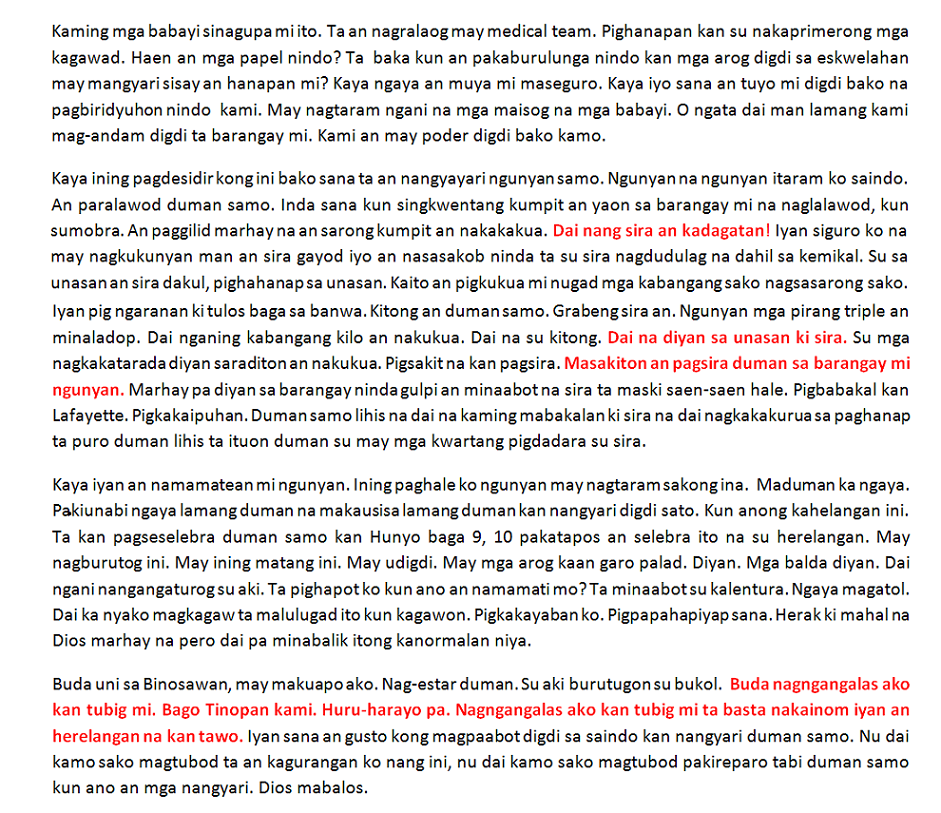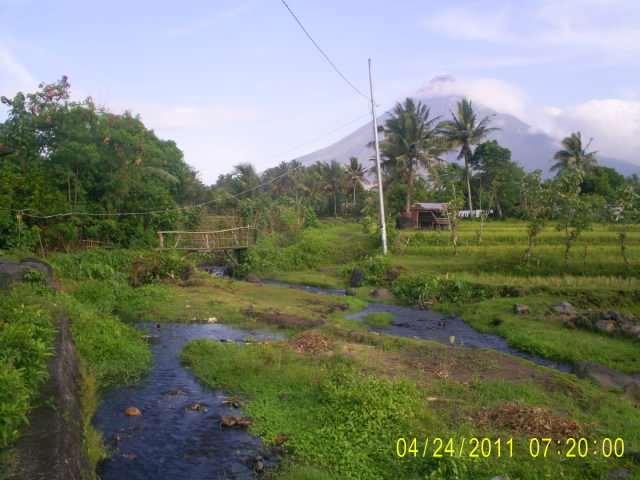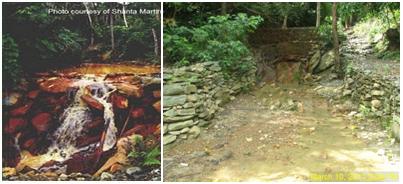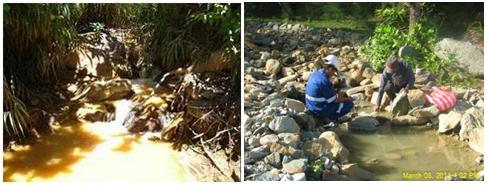1. "allegations against the project are baseless, speculative and in no way supported by facts or evidence."
-- The International Solidarity Mission will release a full report of its findings. When they do, let's see if company reps can still say they are speculative. Let their methods and findings be tested by fair and objective scientific evaluation. Unlike what the company and DENR did with the findings of the test run. The company failed the test run. The presence of mineral contaminants in the waters were found to be way off the charts. There was even a fish kill mentioned (in passing) in the official report. Yet the DENR chose only the "expert opinion" minimally favorable to them. And that was all the DENR needed to grant approval to the resumption of Lafayette's mining operations. It was not a test run at all, it was a "tutorial run". In the meantime, why don't the company respond scientifically to the findings of Dr. Emelina Regis in her book "Impacts of Mining in an Island Ecosystem: The Case of Rapu-Rapu Island, Philippines" (Ateneo de Naga University: 2008).
2. “The project can only be successful if we protect local residents and the environment for the long term,” he said.
-- The project does not enjoy the support of the local community. The people themselves complain of health problems, loss of potable water, dwindling fish catch, social division, corruption, human rights violations, etc. And Lafayette-RRMI-RRPP has the gall to tell the people the company is protecting them. Let company officials speak about these claims in a public forum in Rapu-Rapu and let's see how the community will react to them.
Increased militarization in affected communities near the mine site
3. “Safeguarding the people and the environment is a priority which we are actively pursuing,” Corpus said.
-- Double-talk. People and the environment, them too. But profit mostly. Double-talk.
4. Since July, 2008, the new shareholders of the company have deposited P50 million in an escrow fund for its Final Mine Rehabilitation and Decommissioning Plan (FMRDP). Corpus said the advance deposit is the first ever to be made by any mining operation in the country before approval of its FMRDP.
-- And the island's residents should just be grateful for the company's great generosity. Let's forget about the overly-minimal tax they're paying and the overly-generous tax exemptions they're enjoying, while they wantonly blast the bowels and mountainsides of the island to extract its minerals. And for whose benefit? Certainly not for the majority of the people of Rapu-Rapu, or the province of the Albay. A few local employees and corrupt politicians may have some share in the benefits, but definitely not the majority of the people.
5. "The project has successfully passed the surveillance audits for its ISO 14001 certifications for environmental management systems"
-- Ah, the ISO certification... Can this ISO certification restore the losses in fish catch, give justice to the human rights violations, the health problems, the pollution in water supply, and the displacement of the people? Were these issues even considered before the certification was even granted? Your ISO certification may be good for your company's image, but what good does it do to the lives of the residents of Rapu-Rapu? I tell you what it actually does to the people: it further disenfranchises the suffering voices of the affected communities.
These are pictures from an ISO 14001 certified company:





Business Mirror
Regions
Written by Jonathan Mayuga / Correspondent
Tuesday, 09 June 2009
RAPU-RAPU Minerals Inc. belied allegations that its Rapu-Rapu Polymetallic Project in Albay is threatening the health and livelihood of island residents.
Roger Corpus, Rapu-Rapu Minerals president, said in a statement that allegations against the project are baseless, speculative and in no way supported by facts or evidence.
According to Corpus, Rapu-Rapu Polymetallic is continuously strengthening measures to safeguard the people of Rapu-Rapu Island and their environment.
“The project can only be successful if we protect local residents and the environment for the long term,” he said.
Specifically, Corpus said that if the project were to have any adverse impact on people’s health, the 875 personnel at the mine and processing plant would be affected first before nearby residents, but there has been no such health impact from the Rapu-Rapu operations.
Corpus cited the following recent measures to protect Rapu-Rapu residents and the environment:
The mine’s tailings storage facility (TSF) has been strengthened and developed further to a capacity of 1.4 million cubic meters, of which 540,000 cubic meters are currently available.
Corpus said the TSF embankment is designed with technical specifications to properly contain tailings, including an impermeable clay section to prevent penetration by stored tailings and tailings water.
The tailings are kept underwater to render them inactive. While best practice calls for a cover of two meters of water, the TSF now has a depth of 10 meters of water covering the tailings.
In the event of any overflows during heavy rains, the spillway from the TSF has been lined with concrete to prevent soil erosion that may cause turbidity in the run-off. The spillway is linked to the environmental ponds to ensure the company’s compliance with standards set by the Department of Environment and Natural Resources for water quality, which is constantly monitored.
Environmental monitoring is integral to its operations, including continuous monitoring of water quality covering an extensive area within and outside the project site.
The project’s approved Environmental Protection and Enhancement Program specifies a total of 26 water-quality monitoring stations. On its own initiative and as the project develops, Rapu-Rapu Polymetallic has established additional monitoring stations to cover a much bigger area, so there are now 37 stations.
Since July, 2008, the new shareholders of the company have deposited P50 million in an escrow fund for its Final Mine Rehabilitation and Decommissioning Plan (FMRDP). Corpus said the advance deposit is the first ever to be made by any mining operation in the country before approval of its FMRDP.
When the plan is approved, regular deposits into the fund will continue on a stipulated schedule. The fund will cover the costs of rehabilitating the site and decommissioning the mine at the end of extraction operations.
“Safeguarding the people and the environment is a priority which we are actively pursuing,” Corpus said.
The project has successfully passed the surveillance audits for its ISO 14001 certifications for environmental management systems.
The ISO 14001 certifications signify that the environmental management systems of Rapu-Rapu adhere to globally recognized standards, and that the project is environmentally compliant, he added.

































































































































No comments:
Post a Comment